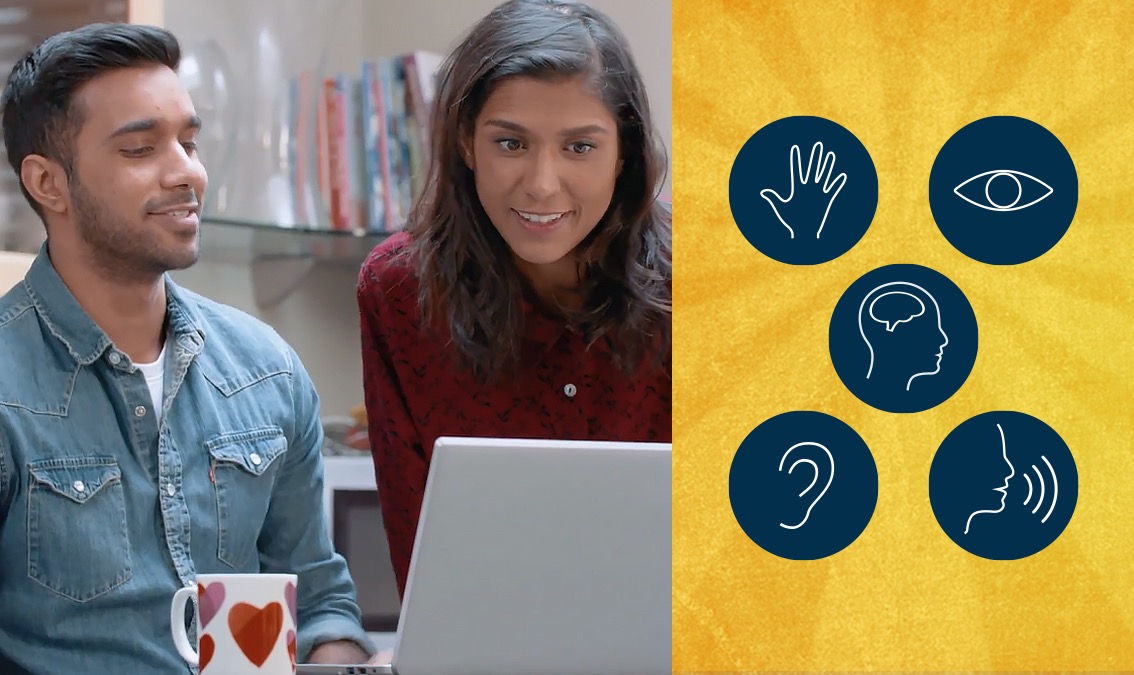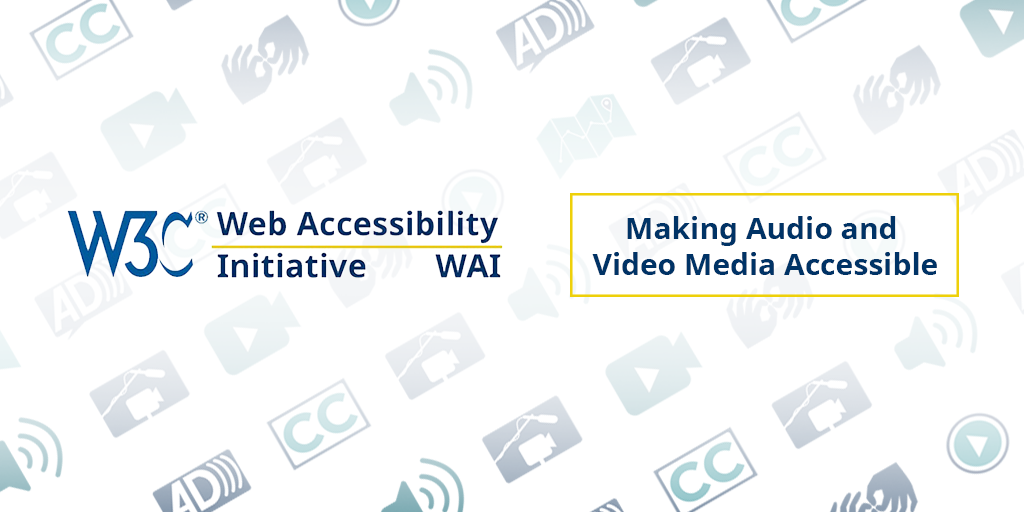Current Work
(updated monthly)
See What We're Working On – Accessibility Activities and Publications
Updated Resource: How People with Disabilities Use the Web
(2024-Jun-24)
How People with Disabilities Use the Web is updated with new user stories (personas) and new videos highlighting “Accessibility: It’s about people”. It describes tools and approaches that disabled people use to interact with technology and it covers barriers that people experience because of inaccessible digital technology. The resource helps developers, designers, content creators, and others understand the reasons behind creating accessible digital products. To quote the new videos: Whatever your role, “You can help make technology accessible to me.”
For Review: ACT Rules Format 1.1 - First Public Working Draft
(2024-Jun-18)
Accessibility Conformance Testing (ACT) Rules Format 1.1 Working Draft is available for review. The ACT Rules Format defines a format for writing accessibility test rules. It helps developers of automated testing tools and manual testing methodologies to write, share, and implement test rules. The test rules contribute to consistent testing for accessibility standards compliance. Changes from ACT Rules Format 1.0 include: new secondary accessibility requirements and allowing subjective applicability statements. For an introduction to ACT resources, see the ACT Overview. Please submit any comments by 18 August 2024.
WCAG 2.2 in Dutch: Authorized Translation Published
(2024-Jun-13)
Richtlijnen voor Toegankelijkheid van Webcontent (WCAG) 2.2, the Dutch Authorized Translation of Web Content Accessibility Guidelines (WCAG) 2.2, is now available, following completion of the W3C Authorized Translations process. Other translations of WAI resources are listed in All WAI Translations. WAI encourages translations in all languages. If you might be interesting in translating resources, see Translating WAI Resources. Thank you to all who contribute to translations.
WCAG 2.2 in Catalan: Authorized Translation Published
(2024-May-22)
Directrius per a l’accessibilitat del contingut web (WCAG) 2.2, the Catalan Authorized Translation of Web Content Accessibility Guidelines (WCAG) 2.2, is now available, following completion of the W3C Authorized Translations process. Other translations of WAI resources are listed in All WAI Translations. WAI encourages translations in all languages. If you might be interesting in translating resources, see Translating WAI Resources. Thank you to all who contribute to translations.
For Review: WCAG 3 Working Draft Outcomes
(2024-May-16)
An updated WCAG 3 Working Draft is ready for review. This draft includes potential outcomes that we are exploring. The purpose of this draft is to:
- better understand the scope of user needs and how they could be addressed in an accessibility standard,
- request assistance in identifying gaps, and
- request assistance locating and conducting research to validate or invalidate the drafted outcomes.
To learn more about this draft and review questions, please see the WCAG 3 Introduction.
Job Openings: Content Specialist, Technical Specialist
(2024-Mar-19)
W3C is seeking candidates from diverse backgrounds for two open positions in accessibility: 1. Accessibility Content Specialist for full-time remote work on accessibility materials. 2. Web Technical Specialist for full-time remote work in the USA on a project developing the technical infrastructure to support digital accessibility materials development and delivery. We welcome applications by 2 April 2024.
Call for Implementations: Digital Publishing Accessibility Candidate Recommendations
(2024-Feb-27)
Digital Publishing WAI-ARIA Module 1.1 (DPUB-ARIA) and Digital Publishing Accessibility API Mappings 1.1 (DPUB-AAM) are now Candidate Recommendation Snapshots. That means we’re seeking example implementations. These specifications help assistive technology users navigate through structural divisions in documents, for example, in ebooks. To learn more, see the e-mail announcement. Please submit implementations and any comments by 27 April 2024.
See All News Subscribe to WAI News

